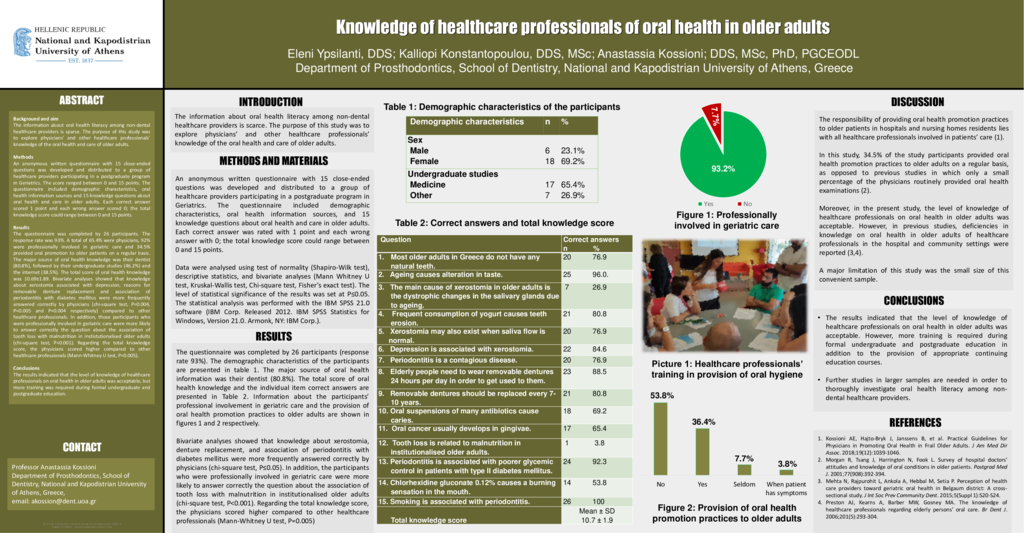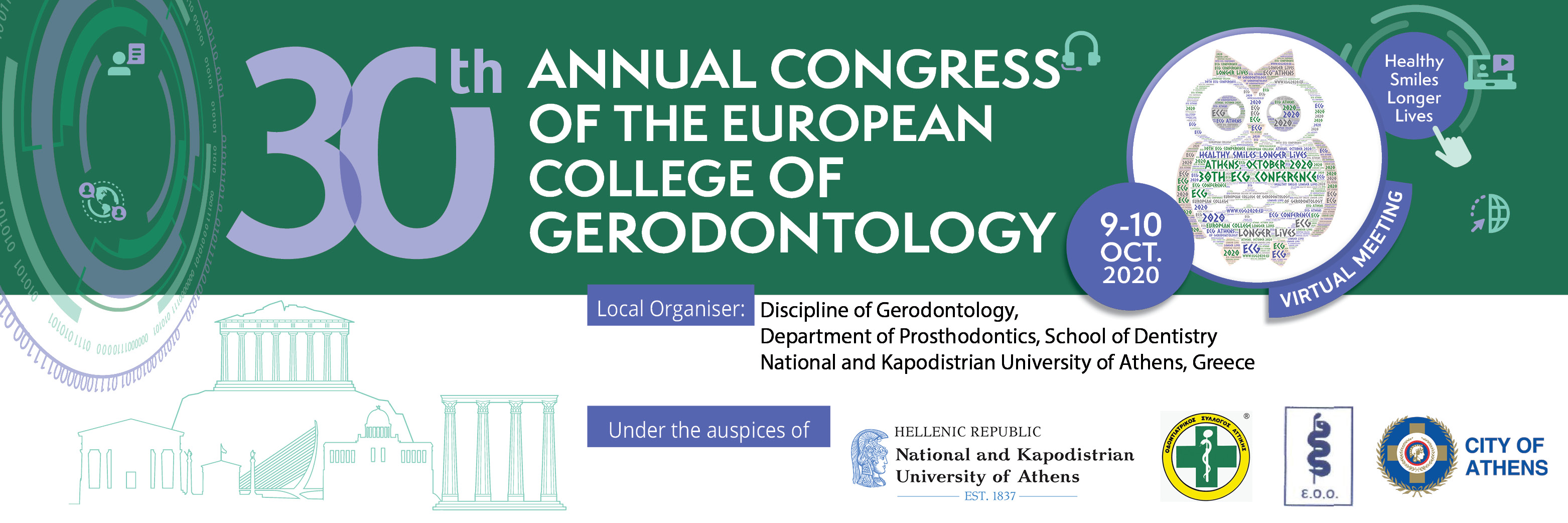Background and aim: The information about oral health literacy among non-dental healthcare providers is sparse. The purpose of this study was to explore physicians’ and other healthcare professionals’ knowledge of the oral health and care of older adults. Methods: An anonymous written questionnaire with 15 close-ended questions was developed and distributed to a group of healthcare providers participating in a postgraduate program in Geriatrics. The score ranged between 0 and 15 points. The questionnaire included demographic characteristics, oral health information sources and 15 knowledge questions about oral health and care in older adults. Each correct answer scored 1 point and each wrong answer scored 0; the total knowledge score could range between 0 and 15 points. Results: The questionnaire was completed by 26 participants. The response rate was 93%. A total of 65.4% were physicians, 92% were professionally involved in geriatric care and 34.5% provided oral promotion to older patients on a regular basis. The major source of oral health knowledge was their dentist (80.8%), followed by their undergraduate studies (46.2%) and the internet (38.5%). The total score of oral health knowledge was 10.69±1.89. Bivariate analyses showed that knowledge about xerostomia associated with depression, reasons for removable denture replacement and association of periodontitis with diabetes mellitus were more frequently answered correctly by physicians (chi-square test, P=0.004, P=0.005 and P=0.004 respectively) compared to other healthcare professionals. In addition, those participants who were professionally involved in geriatric care were more likely to answer correctly the question about the association of tooth loss with malnutrition in institutionalised older adults (chi-square test, P<0.001). Regarding the total knowledge score, the physicians scored higher compared to other healthcare professionals (Mann-Whitney U test, P=0.005). Conclusions: The results indicated that the level of knowledge of healthcare professionals on oral health in older adults was acceptable, but more training was required during formal undergraduate and postgraduate education.
- 43 views



